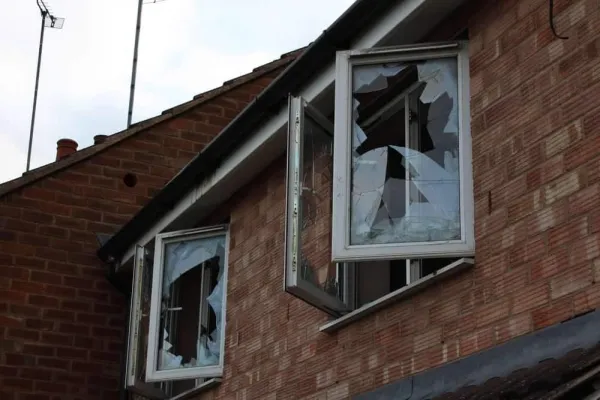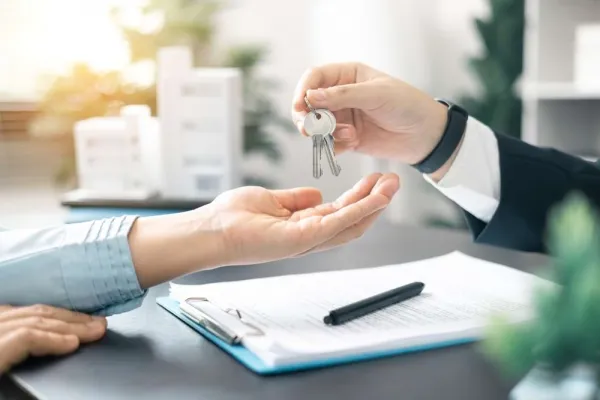You may be part of a house chain when buying or selling a property. House chains can be complex and stressful, with multiple parties involved and factors that can cause delays or break the chain altogether.
This blog will explore house chains, the common challenges you might face in a chain, and ways to manage the process effectively. It will also discuss the benefits of selling to a chain-free buyer and how to become one. Understanding house chains’ intricacies is crucial for successfully navigating the property market.
What is a House Chain?
A house chain refers to a series of linked property transactions in which each buyer and seller depend on the others to complete successfully. For example, imagine you’re selling your current home to buy a new one. Your buyer must also sell their property to fund your purchase, and their buyer may be in the same situation. This creates a chain of linked transactions, each relying on the others to proceed.
House chains can vary in length, from just a few parties to many. The longer the chain, the more complex and potentially problematic the process can become. Each link in the chain is vulnerable to delays, changes in circumstances, or other issues that can affect the entire chain. In some cases, chains can involve multiple branches, with buyers and sellers interconnected in various ways. This complexity can make it challenging to keep track of progress and ensure that all parties are working towards the same goal. It’s essential to understand your position within the chain and how any changes or delays might impact your transaction.
Common challenges you’ll encounter with a house chain
When you’re part of a house chain, you may face several common challenges. One of the most significant is the risk of the chain breaking. This can happen for various reasons, such as a buyer pulling out, a property failing to meet mortgage requirements or a delay in the legal process. If one link in the chain breaks, it can have a domino effect on the other transactions, potentially causing the entire chain to collapse.
Another challenge is the lack of control you have over the process. When you rely on other parties to complete their transactions, you may feel powerless to move things along. Delays can be frustrating, especially if you’re trying to move into your new home or need the funds from your sale to finance your onward purchase.
Communication can also be a challenge in a house chain. Keeping everyone informed and updated on progress is essential with multiple parties involved. However, this can be difficult to manage, particularly if you rely mainly on estate agents or solicitors to pass on information. Miscommunication or lack of clarity can lead to misunderstandings and further delays. It’s crucial to establish clear lines of communication as early on as possible in the process and ensure that all parties are kept in the loop throughout. Regular updates and proactive communication can help to mitigate some of the stress and uncertainty associated with being part of a chain.
Ways to make sure a house chain doesn’t fall apart
While there’s no guaranteed way to prevent a house chain from falling apart, the good news is that you can take steps to reduce the risk. One of the most important is to work with experienced, reputable professionals. Choose an estate agent and solicitor with a track record of successfully managing house chains and who will keep you informed throughout the process.
It’s also vital to be proactive in your communication. Ask questions or request frequent updates from your estate agent or solicitor. If you’re concerned about delays or potential issues, raise them early to address them.
Being prepared and organised can also help keep the chain moving. Ensure you have all the necessary documents and information, such as proof of funds or identification. Respond promptly to any requests from your solicitor or estate agent, and be ready to make decisions quickly if required.
Another way to reduce the risk of a chain breaking is to be flexible where possible. Suppose you can accommodate a buyer’s request for a later completion date. In that case, it may help to keep the chain intact. However, balancing flexibility with your needs and circumstances is necessary. Being too accommodating can sometimes lead to further delays or complications, so setting clear boundaries and expectations from the outset is essential. Open and honest communication with all parties can ensure that everyone’s needs are met as far as possible while avoiding breaking the chain.
Is it better to sell to a chain-free buyer?
Given the challenges and risks associated with house chains, it’s natural to wonder whether selling to a chain-free buyer is a better option. What is a chain-free buyer, exactly? Simply put, a chain-free buyer does not have to sell their property to fund the house purchase. This could be a first-time buyer, someone who has already sold their home, or an investor.
There are certainly advantages to selling to a chain-free buyer. The transaction is likely quicker and more straightforward, as fewer parties are involved and less risk of delays or complications. This can be particularly appealing if you’re keen to move quickly or have a tight timeline.
However, it’s important to remember that chain-free buyers are often in a stronger negotiating position. They may be able to offer a lower price or demand more favourable terms, knowing that you may be keen to avoid the risks of a chain. As such, you’ll need to weigh the benefits of a quicker, more straightforward transaction against the conditions and the level of demand for properties like yours. In a buoyant market, you may attract plenty of buyer interest, both chain-free and otherwise, which could give you more bargaining power. Ultimately, the decision to sell to a chain-free buyer will depend on your circumstances and priorities.
How can I become a chain-free buyer?
If you’re looking to buy a property and want to avoid the challenges of a house chain, you can become a chain-free buyer in several ways. One option is to sell your current home before you start looking for a new one. This can be a good approach if you can secure temporary accommodation or are willing to rent while you search for your new home.
Another option is to consider a bridging loan. This short-term loan can help you bridge the gap between buying your new home and selling your old one. However, bridging loans can be expensive and come with risks, so seeking professional advice is vital before proceeding.
If you’re a first-time buyer or have significant savings, you may be able to buy a property without needing to sell one first. This can put you in a strong position as a chain-free buyer. However, you must ensure sufficient funds to cover the purchase and associated costs.
Ultimately, becoming a chain-free buyer requires careful planning and consideration of your financial situation. It may only be possible or practical for some. However, if you can achieve it, it can make buying a new home much simpler and less stressful.
If you’re hoping for a fast house sale, sell to cash house buyers SOLD.co.uk today.
















